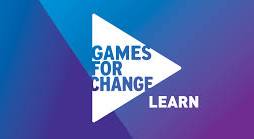Dive Brief:
-
Research from the Stanford Center for Education Policy Analysis finds the African American Male Achievement program in California's Oakland Unified School District, part of former President Barack Obama's My Brother's Keeper Challenge, decreased the dropout rate for black male students by 43%, serving as an example of how black male educators can decrease dropout rates for this at-risk population.
-
In this program in particular, black male teachers also focus on social-emotional training, African American history and culturally relevant pedagogy.
-
AAMA access was also found to reduce dropout rates for black female students by 29%. Though black female students did not participate in the program directly, the research suggests they may have benefited from the "positive peer-group effects" from male counterparts who participated.
Dive Insight:
The My Brother’s Keeper Challenge funds educational initiatives designed to improve life outcomes for men of color. Nearly 250 communities from 50 states are participating in MBK and have received a total of more than $600 million in grants and in-kind resources, as well as $1 billion in financing.
Authors of the Stanford CEPA study say the findings imply “targeted universalism," or clearly communicating universal goals and designing specific strategies to achieve them, is a promising approach to improving the lives of black men and women.
The report also states federal education policies are waning, and poor data reporting by civil rights groups doesn’t help procure more funds. Rather, more evidence-based school improvement strategies should be used to assess the need, and high-quality curricula and good teaching practices would benefit historically underserved student populations.
Black male students are a group shown to be at the highest academic risk, and the AAMA program supports black males not only through black male teachers, but also through peer mentoring, a student leadership council and meet-ups to connect role models with students. A career academy called Khepera Pathway is also designed to give black males opportunities to participate in entrepreneurship, civic engagement and social innovation.
Addressing these needs is important because a student’s home life, access to healthcare and even air pollution can all have negative impacts on academic performance. That can, in turn, diminish opportunities for success later in life.
A study from the University of California found black students are more likely to deal with these hardships and that puts this group more at risk. The study indicates the hiring of more black educators and alternative discipline strategies may help ease this disparity.
Another study from John Hopkins University finds black teachers make a strong impact on students, especially in grades 3-5. When students of color are exposed to role models who look like them early in their education, they are less likely to drop out of high school and more likely to attend college. There is also research that suggests black boys from low-income families have higher test scores when they have black teachers, and that the impact could be made with just one male teacher throughout their entire K-12 experience.












